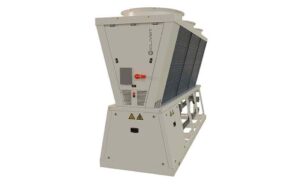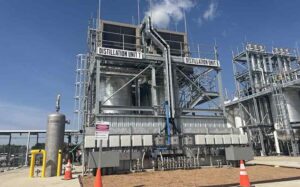Passive cooling test system developed
19th July 2022
GERMANY: Researchers at the University of Bayreuth claim to have created a test system allowing passive cooling materials to be reliably characterised and compared, regardless of weather and environmental conditions.
The measurement setup is said to be the first step towards a standardised, globally applicable test system for comparing high-performance cooling materials.
Passive day cooling is seen as a promising technology for the sustainable reduction of energy consumption. It avoids the heating up of buildings by solar radiation and dissipates accumulated heat without external energy consumption.
“Cooling buildings during the day using passive cooling materials has great potential to establish itself as an effective energy-saving tool,” said the university’s Prof Dr Markus Retsch.
“Many technologically interesting materials and material classes have therefore been developed for heat dissipation, but it is still an unsolved challenge to precisely determine and compare their performance. The laboratory setup we designed helps to overcome this difficulty. It is a test system that makes important contributions to the characterisation of existing cooling materials and the design of new ones, regardless of the weather.”

The lab-based test system is said to mimic the key factors affecting passive cooling performance. It allows the intensity of solar radiation, the temperatures affecting the cooling materials and other environmental influences to be simulated on a miniature scale. This allows the the properties and behaviour of the cooling materials to be compared under the same conditions. The measurement setup is said to be robust, inexpensive and also has the advantage that it can be replicated without great technical effort.
“Our measurement setup is the first step towards standardised performance comparisons between cooling materials that have been developed around the world under very different climatic and weather conditions. Such a test system is an important prerequisite for passive cooling to become a globally applied technology for significantly reducing energy consumption,” said Retsch’s colleague Dr Qimeng Song.







